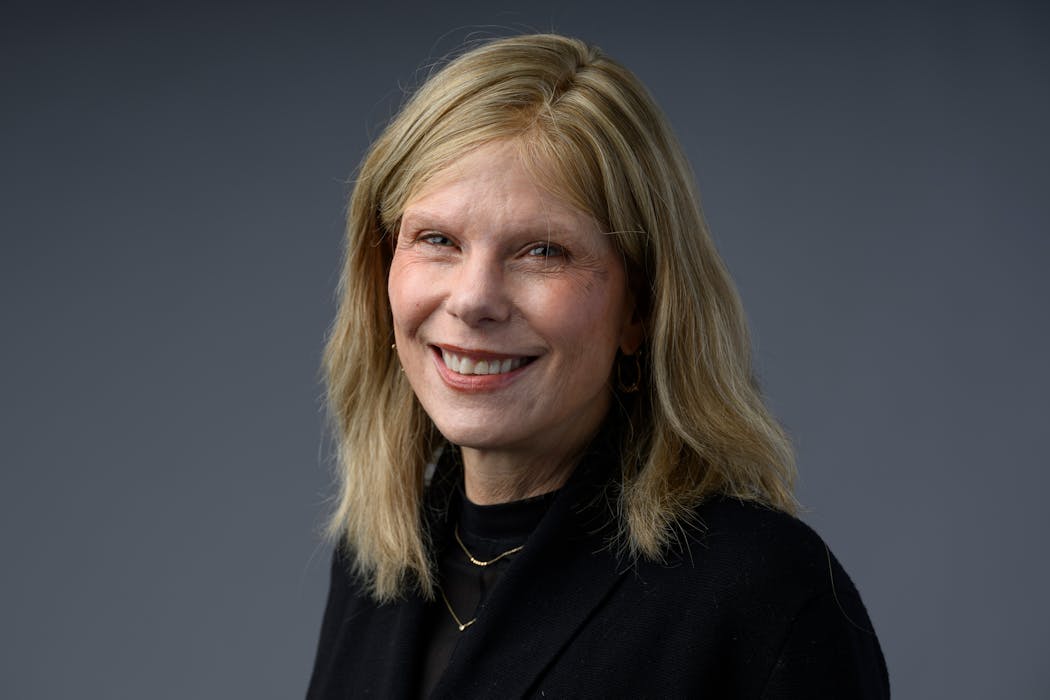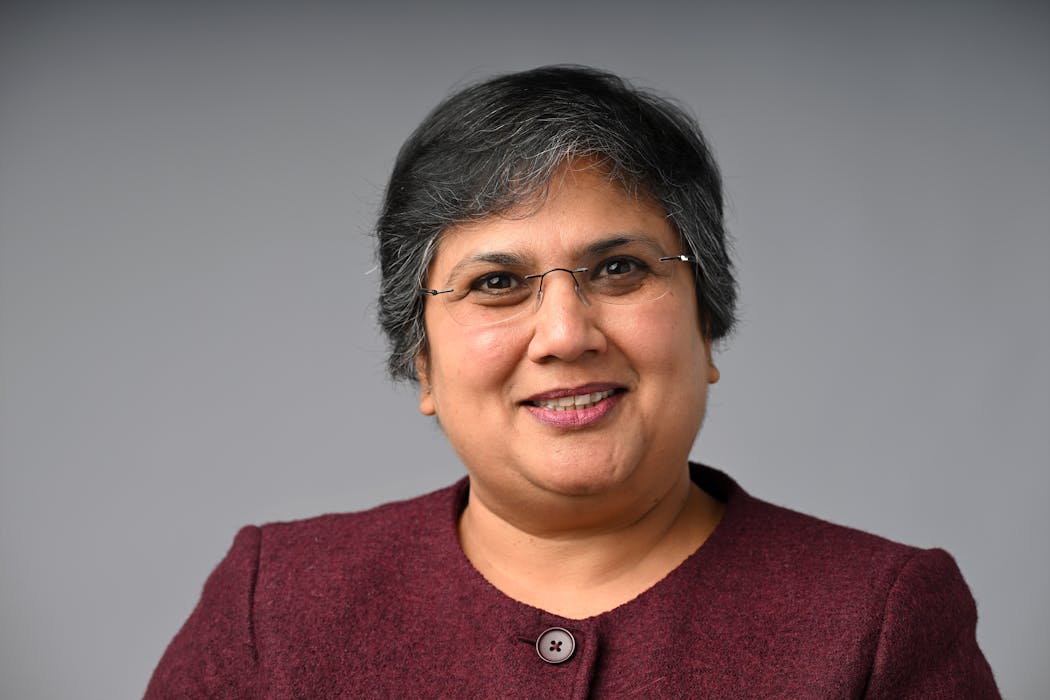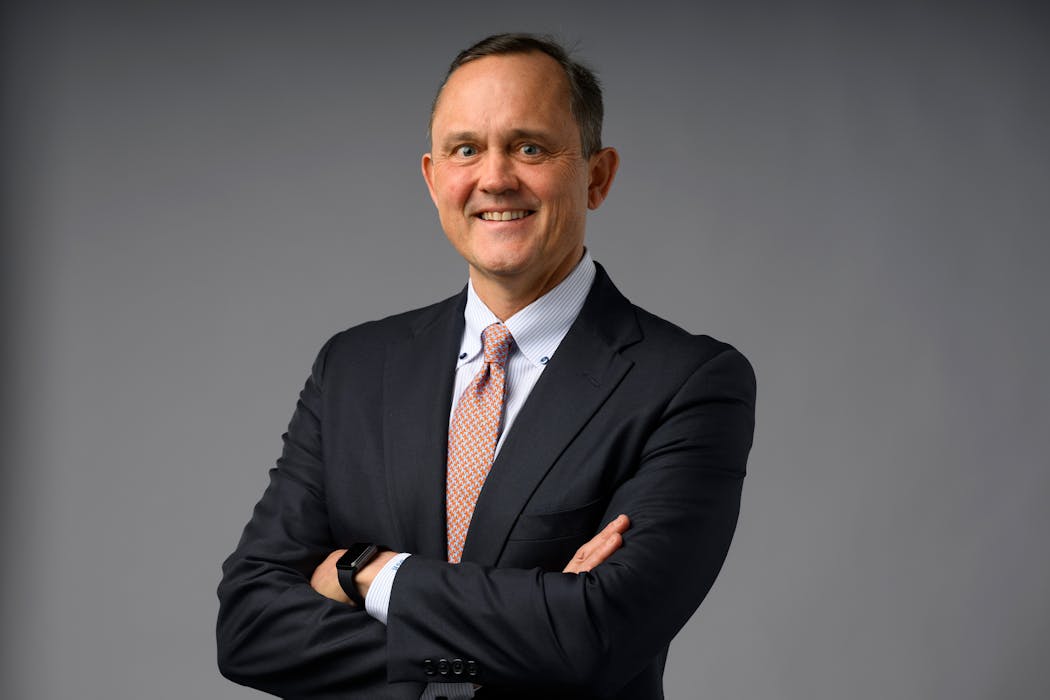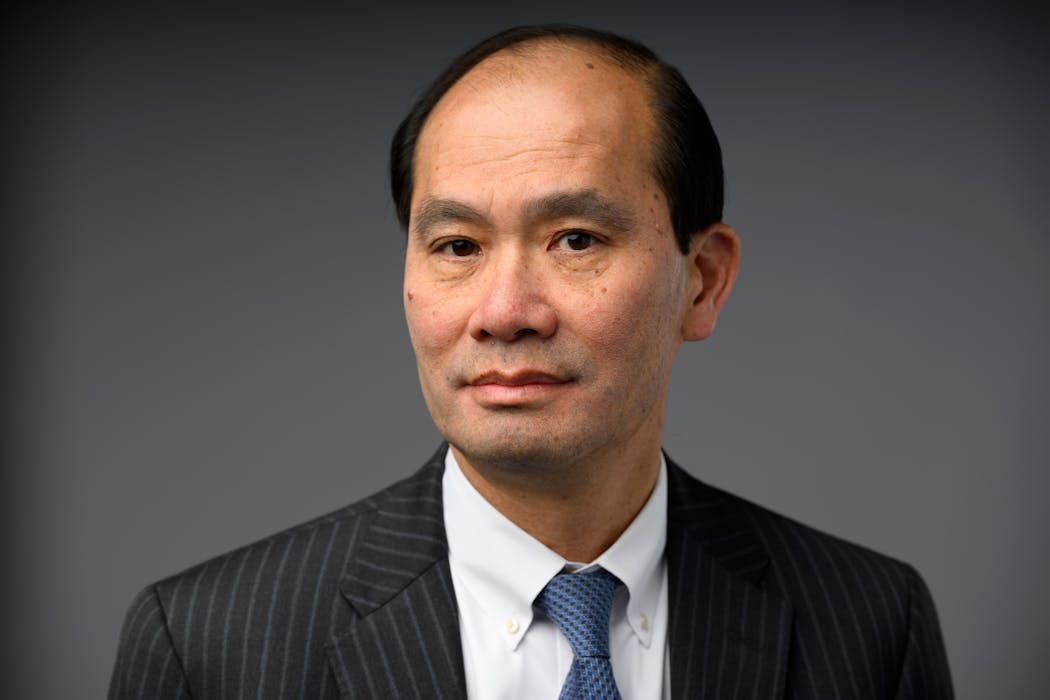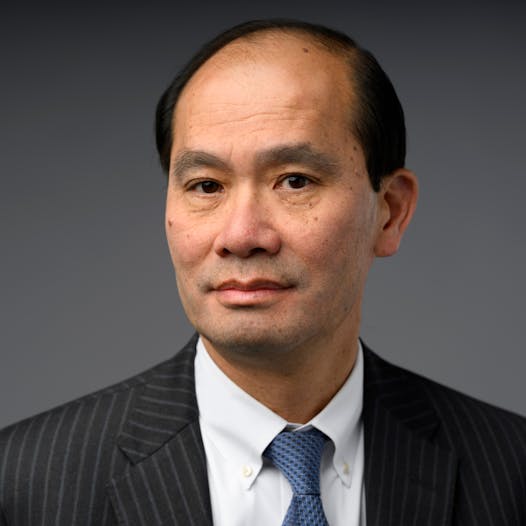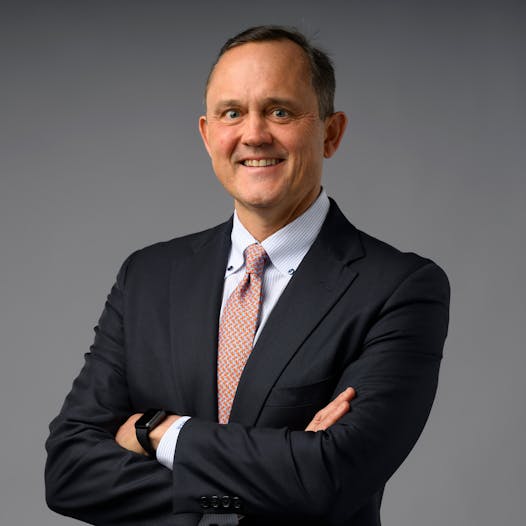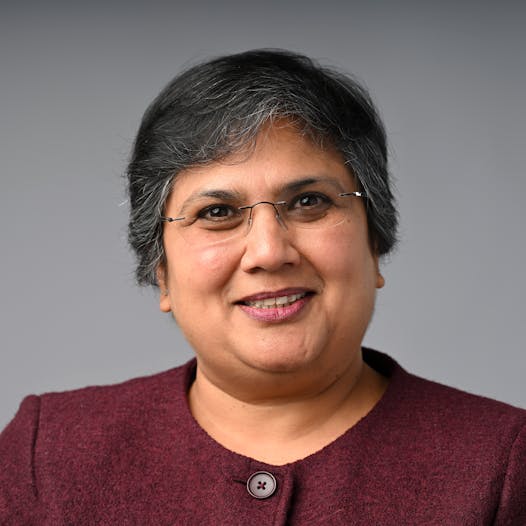At the end of 2022, most professional investors and economists were predicting a slight to modest recession or at the least a slowing economy. It never came to pass.
Yet one of the panelists in this year's Star Tribune roundtable of local investment executives called it the most anticipated recession in history.
The prediction clouded forecasts of how the S&P 500 index would perform this year. Instead of downturns, the index hit its low in the first week of January and saw a fairly steady rise to close near record highs this month. It closed Dec. 22 at 4,755. That means Craig Johnson, chief market technician at Piper Sandler, had the closest prediction of last year's panelists at 4,625.
This year, panelists had mixed forecasts, with one expecting a down market in 2024. The roundtable was a few days before the Federal Reserve had its final meeting of the year and dropped a year-end surprise that it would likely cut interest rates three times next year, perhaps even in the first quarter. In a follow-up with the panelists, they said the change did little to affect their predictions.
Questions and responses have been edited for length and clarity.
Meet the roundtable
Erica Bergsland
Head of ESG portfolio strategies and chief risk officer at Securian Asset Management
Sonali Dalal
Chief investment officer of the University of St. Thomas
David Royal
Chief financial officer and chief investment officer of Thrivent Corp.
Jill Schurtz
Chief investment officer of the State Board of Investment
Jean-Roch Sibille
Chief investment officer of Allianz Life Insurance Co. of North America
Roger Sit
Chief investment officer of Sit Investment Associates
As you review the year, did the markets perform to your expectations?
David Royal: At a macro level, it was largely consistent with expectations. We were a little bullish going in; that's why I had the target that I had. We were overweight on equities entering the year. If anything, the data came in better than expected.
We were not predicting a recession going into this year; fortunately it played out that way.
Roger Sit: On the market rally side, I think it was a big surprise that it was such a narrow market rally. Some people call them the Magnificent Seven. I call them the Magnificent Eight. You had Facebook, Apple, Amazon, Netflix, Google, Nvidia, Tesla and Microsoft. Those eight stocks accounted for the whole market movement up to about two months ago. Those Magnificent Eight were up almost 65 percent.
Erica Bergsland: I do think it's been a confusing year on the economic front. I think economic data is still being distorted by pandemic factors. And I think going into 2024, we might have a more normal dynamic within the economy. It will be interesting to see how investors deal with that.
What surprises did you see during the year?
Jean-Roch Sibille: I think for us it was on the real estate side. The return to office isn't completely there yet. If we continue to have sustained high interest rates, I think the office side — and a lot of the money that has been poured into real estate over the years — might cause a little bit more weakness in the system.
Jill Schurtz: What's surprising is how resilient the economy has been in the U.S. If you'd said at the beginning of the year that we'd face the banking crisis [mainly the collapse of Silicon Valley Bank in March], that we'd have continuation of [war in] Ukraine, that we'd see just geopolitical distress on so many fronts, and yet we'd weather the storm the way we have, particularly the domestic economy — I think there's a lot to be said for that.
What does the presidential election year mean for markets heading into 2024?
Sonali Dalal: Historically, the fourth year has been a good one. So I would be more worried about 2025. But is this time different? So is this election like any other election? The main thing is, will the results be accepted by everyone?
Sibille: Incumbents have a preference, but it's always conditional on the approval rating. And we really have this case now that you have an incumbent where the approval rating is not where others have been in the past. What that really says is, the likely volatility in markets you get in years like that is going to be very high.
Sit: Along with the presidential election is the election results for both the Senate and the House. Because a divided government is good for the markets, because nothing too much gets done either way. If they are all on one party side, either party, that's when the markets get a lot more choppy and volatile.
Royal: This administration has shown a willingness to take short-term actions that it views as pro consumer such as releasing oil from the strategic petroleum reserve when oil prices were higher, or extending the student loan moratorium. I wouldn't expect the current administration to take any action that would slow the economy in the election year, which maybe at the margins provides a little downside protection for markets.
What impact does the U.S. government's fiscal health have on the economy?
Schurtz: At some point, we do have to talk about how to get our fiscal house in order. Inevitably, that's going to be an issue. But, you know, there's another pretty incredible thing that happened domestically. And that is a fundamental shift in U.S. industrial policy, with the CHIPS Act and the Inflation Reduction Act. We're going to see the ripple effect of that for the next several years.
Sit: The two leading candidates right now, on each side, are both pro spending more. And that is not, in my opinion, necessarily good for the intermediate to longer term for the markets, whether you're talking the equity market, bond market, real estate market, whatever.
Royal: The annual interest expense is about to cross a trillion dollars, which is more than we spend on national defense. That's a staggering number.
Evaluating environmental, social and corporate governance (ESG) in investing continues to evolve. What is ahead for ESG investing?
Bergsland: It was positioned as a win-win that was going to be realized over a short-term time horizon. And it may be a win-win, but will be a very long-tail evolution.
One of the reasons why investors have focused on social responsibility with investments is because of lack of public policy leadership. And I think that it will be interesting to see if more of that gets filled at the policy level, which I think would be healthy because it would enable a market response, as opposed to investors being on their own thinking about what is the right thing to do.
Schurtz: When you look at where we've come from, it feels like we've gone from products around ESG to, now, pragmatism. And I think that that's a really interesting point in time, because when you hit pragmatism, I think you actually stand a better chance of driving real change.
Artificial intelligence exploded into the public consciousness this year. How should investors look at AI as an investable asset?
Dalal: On every technology, the framework I use to think about it is: Is there an idea and a technology? If so, then it needs hardware around it. After that the next layer is the software and applications that are user-facing.
The technology and the hardware-risk return profiles are such that it should be part of venture capital investing — high return, high risk.
As far as investing in AI, I would be more focused on the application part, and software and the user-facing part where the technology is already proven. And then it's all about implementation. So how that develops is something I'm looking forward to.
Sit: I'm pretty positive on AI. And the reason for that is I think you can think of an application for AI across every industry that you think about. Keep in mind that AI helps take over the routine tasks in any industry, and then allows the existing workforce to focus on enhancing what they were doing before.
So that provides growth. That provides growth for the economy overall. That provides growth for every industry. That provides growth for every company. There's a lot of peripheral companies that their earnings are going to be materially enhanced. That will lead to stock price appreciation.
Schurtz: This is one of the mega trends that we're going to see for the rest of our careers. It's going to be felt far and wide — and for the first time in a long time with technology changes. It might not be felt as much by our blue-collar workers. And so I think that's an interesting phenomenon.
I don't mean to be negative, but I think that we have a lot of work to do on the governance side of it. We're going to see a really busy few years as everybody worries about, What does this mean? We're going to have to get to a point where we see who the winners are, who can actually make money doing this.
Fixed-income investments were challenging in the past few years. What are the prospects in 2024?
Sibille: I am predicting that we're slowly getting to a normalized territory. There will probably be an impact on the downside. I think it was mentioned that whatever administration, it's unlikely that we're going to get around the fiscal challenges. So they will be pressured down.
Bergsland: I think investors were shocked last year when they got equitylike downside in a supposedly safe asset class, but what investors really need to know is that the risk-reward proposition is very different today. Yes, rates can still go up, which would be bad, but there's probably a lot more room for rates to go down versus going up. And investors would benefit from that. It's a great opportunity to lock in some returns. And, you know, we think fixed income is very well-positioned and a good part of the portfolio.
A couple concerns I have tactically right now is spreads are really tight. Investors aren't really being compensated for the level of uncertainty we have going into next year. And the other piece that is a worry is, again, the fiscal position of our country. The level of Treasury debt that needs to be refinanced or issued over the next indefinite number of years could put pressure on rates and keep rates higher than people were expecting.
Sit: If you need predictability, and you have nondiscretionary funds, especially over the next 12 months, absolutely you should be taking advantage of the bond market right now. Longer term, I think you've got to continue to have a diversified portfolio, because you have to make sure you have your investments in equities as well and in other asset classes to get the returns you need.
Give us your prediction for the S&P 500 index at the end of 2024 and how we will get there.
Sit: I'm using 5,100. That's about an 11 percent or 12 percent upside from where we are today. It's as simple as earnings. The estimated earnings for the S&P 500 companies is about 11 percent to 12 percent. And I think that's a realistic earnings growth number. Apply the same type of multiple to what you've got right now and that's how you get the target.
Royal: I remain fairly optimistic for 2024. Despite all the calls for recessions, we've only had four recessions in the last 40 years. It would be unusual to have another one this early in the cycle. I think there's underlying economic momentum; we see it in our private equity portfolio. So I think it'll be a low double-digit return 10 percent to 12 percent — something that range. My number is going to be 5,070.
Sibille: I see volatility coming up. Also, a lot of companies have been able to postpone refinancing. I think the cost of the refinancing is going to be heavier and heavier. I feel OK about next year. I would completely agree that the year before the election, typically, it's more lenient on the corners. So, 4,900, a good year but not exceptional.
Schurtz: Because we are a pension fund, we think 30, 40, 100 years out. I suspect that the climate is benign, but with continued volatility when we start to see rates come down. There's so much cash sitting on the sidelines, that when there is conviction that it happens, it will likely result in a pretty sustained rally. I'll go with 4,800.
Dalal: I'm keeping in mind, are we in the Roaring '20s? Like 1920s? Or are we in 1970s? '70s inflation didn't go up in a single line. It had this thing, back and forth. And so what kind of environment are we in? And I am tracking things like productivity. If it stays up, then high growth will not create inflation. So, it's wait and watch. I don't want to cop out, but I would say about a 5 percent return. (A 5% return on the S&P 500 on the day of our meeting translated to 4,830.)
Bergsland: Charlie Munger, who is Warren Buffett's partner in business, died recently. And he said the big money is not in the buying and selling, but the waiting. And I think stocks are a great investment longer run, but I have a more negative view in the near term.
Higher margins and pretty good revenue growth are going to be tough in a year when economists are predicting the economy is sort of teetering on a recession driven by poor consumption. So I'm going to say 4,500. I'll stick with my low conviction, lowest number, but I want you to know that I'm a fixed-income investor.
